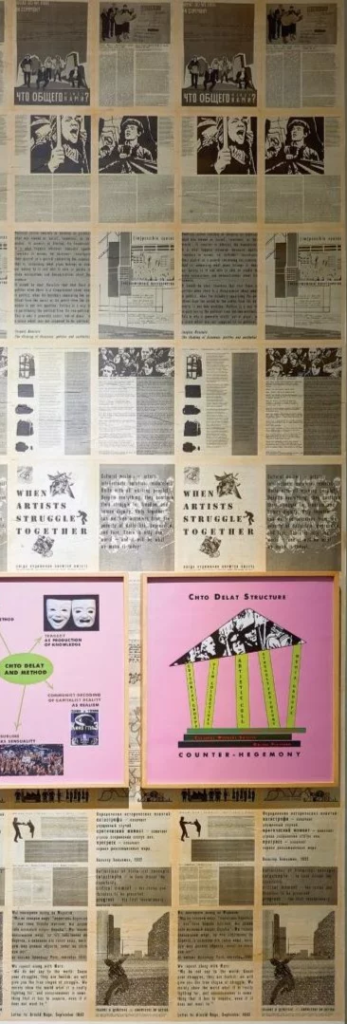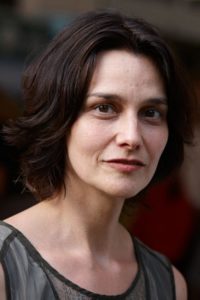1st PoSoCoMeS – MSA Working Group conference (21 September – 1 October 2020)
Cultural Events
Monday, 21 September
The Soviet Garden: Film screening and discussion. Director Dragoş Turea in conversation with Oksana Sarkisova (Vera and Donald Blinken Open Society Archives, Central European University, Budapest)
Tuesday, 22 September
Memory, Fiction, Non-Fiction. Katja Petrowskaja (Berlin) and Maria Stepanova (Moscow) in conversation with Ksenia Robbe (University of Groningen)
Thursday, 24 September
Requiem for Europe. Fragment from a text by Nora Dorogan, Nicoleta Esinencu, Kira Semionov, Doriana Talmazan and Artiom Zavadovsky. Read by Artiom Zavadovsky
Tuesday, 29 September
Chto Delat. Presentation of the Post-Soviet Studies project by the School of Engaged Art
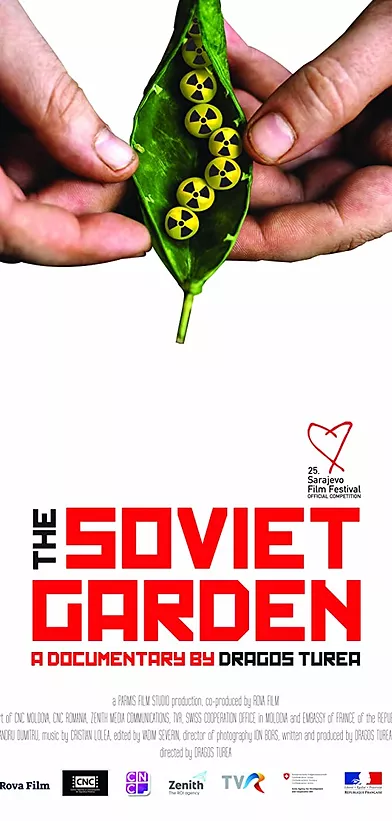
The Soviet Garden
DIRECTOR: DRAGOŞ TUREA | PRODUCER: PARMIS STUDIO MOLDOVA
21 September 2020. 17:00 – 20:00.
Film screening and discussion. Director Dragoş Turea in conversation with Oksana Sarkisova (Vera and Donald Blinken Open Society Archives, Central European University, Budapest).
Parmis Film Studio was established in 2009 by Dragoş Turea and is one of the first independent film companies in Moldova, specialising in making documentaries about human stories, culture, history and other social issues. Dragoş Turea was born in Chișinău, Moldova, in 1980. He studied audiovisual communication at the Academy of Theatre and Film in Bucharest. In 2006 he received a master’s degree in film at the Chișinău Academy of Music, Theatre and Arts. He made his debut in cinema with his short documentary Vasile Mamaliga, awarded the debut prize of the Union of Filmmakers of Moldova in 2007. Between 2007 and 2015 he worked as a producer for Publika TV, Prime TV and Jurnal TV. In 2010 he started his biggest project to date, the feature-length documentary film production The Soviet Garden.
Memory, Fiction, Non-Fiction.
Katja Petrowskaja (Berlin) and Maria Stepanova (Moscow) in conversation with Ksenia Robbe (University of Groningen)
22 September 2020. 16:30 – 18:00.
Katja Petrowskaja (Berlin) and Maria Stepanova (Moscow) in conversation with Ksenia Robbe (University of Groningen)
Katja Petrowskaja
is a writer and journalist. She was born in Kiev in 1970, studied Russian literature at Tartu University and received a PhD from the Russian State University of the Humanities in Moscow. Since 1999, she has lived in Germany and worked for Russian- and German-language media. Since 2011 she is a columnist of Frankfurter Allgemeine Sonntagszeitung. She is the author of the bestseller novel Vielleicht Esther (Maybe Esther) written in German and published in 2014. The novel has been met with great critical acclaim and received, among other, the most important award for debut writing in German, Ingeborg Bachmann prize. It has been translated into 20 languages.
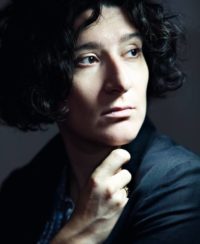 Maria Stepanova
Maria Stepanova
is a poet, essayist, and journalist. Born in 1972, she graduated from Moscow Literary Institute in 1995. She is the author of ten poetry collections and three books of essays, and a recipient of several Russian and international literary awards. Her opinion pieces have been published in Russian, English and German. Her documentary novel Pamiati pamiati (In Memory of Memory) that blends memoir, documents, and essays into an epic narrative, came out in Russian in November 2017 and received the Big Book Prize in December 2018 and NOS prize in February 2019, as well as the Brücke Berlin Prize in 2020. The book was recently published in German, Dutch, Swedish, Italian, Bulgarian and Polish and is forthcoming in English, French, Chinese and a number of other languages. Apart from publishing as a poet and essayist, Maria Stepanova is the founder and editor-in-chief of COLTA.RU, an crowd-funded online daily covering cultural, social, and political life in Russia and in the world; one of the few independent publications in current media landscape, it attracts an audience of 400,000 unique visitors per month.
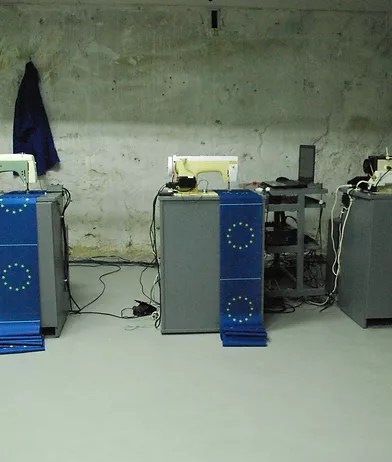
Requiem for Europe. Fragment from a text by Nora Dorogan, Nicoleta Esinencu, Kira Semionov, Doriana Talmazan and Artiom Zavadovsky. Read by Artiom Zavadovsky.
Followed by a discussion. Chair: Yan Feldman (Chișinău)
24 September 2020. 18:00 – 19:30.
One of the main ideas promoted by Moldovan political but also civil society and mass media stakeholders over the past 20 years is that foreign investments should be encouraged at any price. But what are the employees left with, besides the pride of sewing for brands like Armani or Prada and manufacturing wires for BMW or Mercedes? Requiem for Europe reflects on how international players have enforced their discourse, policies and especially their interests in Moldova, and how these have affected daily life.
29 September 2020. 16:30 – 18:00.
In 2013, Chto Delat initiated an educational platform, the School of Engaged Art, and also provides resources for a space called Rosa’s House of Culture. This artistic activity is realised across a range of media—from video and theatre plays to radio programmes and murals—and it includes art projects, seminars and public campaigns. The works of the collective are characterised by the use of an alienation effect, surreal scenery, typicality and—always—analyses of concrete social and political struggles. These activities are coordinated by the core group including Tsaplya Olga Egorova (artist), Artiom Magun (philosopher), Nikolay Oleynikov (artist), Natalia Pershina / Glucklya (artist), Alexey Penzin (philosopher), Alexander Skidan (poet and critic), Oxana Timofeeva (philosopher), Dmitry Vilensky (artist) and Nina Gasteva (choreographer).
Chto Delat has participated in major exhibitions including the Shanghai Biennal 2018, the São Paulo Biennal 2014; Modern Art: 1960–2000. Restart, Tretyakov Gallery, Moscow (2018), MUAC (Museo Universitario Arte Contemporáneo), Mexico (solo show 2017); KOW BERLIN (solo shows 2017 and 2015), Art Turning Left: How Values Changed Making 1789–2013 – Tate Liverpool, Liverpool (2013); FORMER WEST: Documents, Constellations, Prospects, Haus der Kulturen der Welt, Berlin (2013). Its works have been included in the collections of the Museum of Modern Art, New York; the Van Abbemuseum, Eindhoven; Museo Reina Sophia, Madrid; the Centre Pompidou, Paris and the Tretyakov Art Gallery, Moscow, among others.
The Post-Soviet Studies project is dedicated to developing and redistributing the local knowledge acquired through research on different aspects of current post-communist conditions in Russia and other ex-socialist countries. There is a certain urgency of doing this programme now. We need to rethink and practise such things as comradeship, the specifics of decolonial development, applied post-Soviet hauntology, antifascist politics and relations between body and territory. The work of the laboratory consists of a series of collective and individual research, publication and exhibition projects which involve local and international communities.
